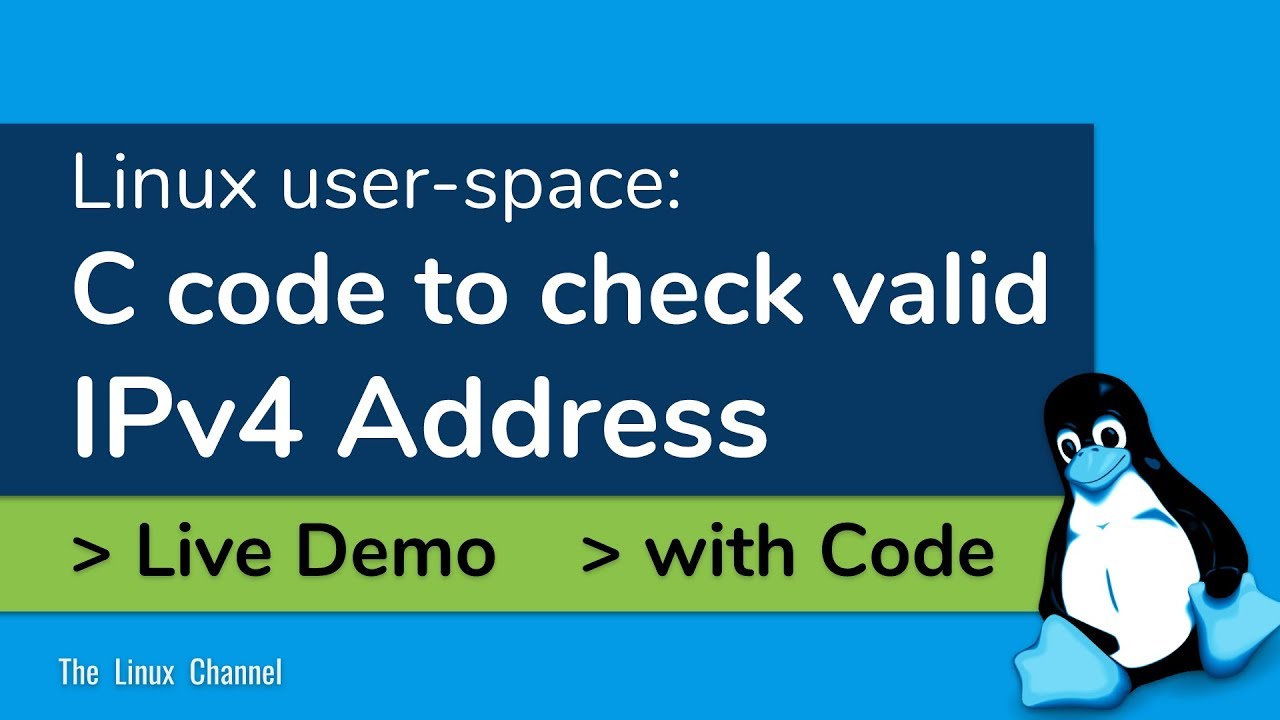Here is my sample source-code discussed in the video:
/* The Linux Channel
* Code for Video Episode: 346 C code to check valid IP Address (IPv4)
* Author: Kiran Kankipati
* Updated: 15-Jun-2018
*/
#include <stdio.h>
#include <stdlib.h>
#include <unistd.h>
#include <string.h>
#include <stdbool.h>
#include <ctype.h>
static bool check_valid_ip_address(unsigned char *buf);
void main()
{ unsigned char buf[40];
strcpy(buf, "192.168.0.1");
if(check_valid_ip_address(buf)) { printf("Valid IPv4 Address: %s\n", buf); } else { printf("Invalid IPv4 Address: %s\n", buf); }
}
/*
IPv4 address - can be:
- Host Address, Gateway
- default route (0.0.0.0)
- subnet mask
- Network ID (network address, subnet)
*/
static bool check_valid_ip_address(unsigned char *buf)
{ char *pos = buf;
if(buf==NULL) { return false; }
//Dot count != 3 ??
{ int dot_count = 0;
pos=buf;
while(*pos!='\0' && *pos!='\n')
{ if(*pos=='.') { dot_count++; }
pos++;
}
if(dot_count!=3) { return false; }
}
//Now parse octets and check the range
{ char temp[10]; int temp_ptr = 0;
int octet;
pos = buf;
while(*pos!='\0' && *pos!='\n')
{ if((*pos)!='.')
{ if(!isdigit(*pos)) { return false; }
temp[temp_ptr] = *pos;
temp_ptr++;
temp[temp_ptr] = '\0';
}
else
{ octet = (int) strtoul(temp, NULL, 10);
//printf("octet: %d \n", octet);
if(octet>=0 && octet<=255) { /* valid range */ } else { return false; }
temp_ptr=0; temp[0]='\0';
}
pos++;
}
octet = (int) strtoul(temp, NULL, 10);
//printf("octet: %d \n", octet);
if(octet>=0 && octet<=255) { /* valid range */ } else { return false; }
}
return true; /* valid IPv4 addr */
}you can compile the same via:
gcc -o check_valid_ipv4_addr check_valid_ipv4_addr.c